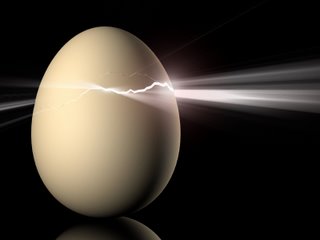Factors Necessary for Successful Conception

Author: Michael Russell
Infertility causes and treatment can be quite complicated, due to the numerous factors that add up to the achievement of a successful pregnancy. More than 10% of couples do not achieve this much wanted pregnancy after 12 months of unprotected sex and trying very hard to conceive. This, in most cases is because one or more of the factors necessary for conception is
absent or malfunctioning.
The factors vital for conception include:
- Adequate and viral sperm from the male partner
- Appropriate frequency of sexual intercourse around the woman's ovulation time
- Optimally free passageway for the eggs to travel down the fallopian tube, meet with sperm coming up the tube and then fertilization
- Appropriate and timely transportation of the product of fertilization down to the uterus for implantation and development
- Adequately free passageway for the sperm to get through the cervix into the uterus, so they can swim up into the fallopian tube to meet and fertilize the female egg
- Healthy and sound uterine cavity with adequate uterine lining conducive to implantation and development of the pregnancy
In evaluating infertility, therefore, or in assessing a couple's chances at conception, we can sub divide the factors vital for achieving conception as thus: * Male Factor (Sperm count and
quality) * Ovarian factor (ovulation frequency and regularity) *Tubal factor (free and clear passage to egg and sperm) *Cervical factor (clear passage to sperm from the vagina) *Uterine factor (adequate space and tissue for the fertilized egg to implant and grow)
Male Factor.
The male factor accounts for 40-50% of infertility problems. Out of this amount only about 10-20% of men have no mature, motile sperm at all (azoospermia). The others only
happen to have low counts or a fewer number of normal shaped, mature and motile sperm cells compared to other fertile men. In normal conditions, an absolute sperm count of 16 million is
perfect, while a count of less than 5 million almost always result in sterility. Counts between 5 and 16 can in most cases be overcome with infertility treatments.
Ovarian Factor
Women who do not produce eggs each month or those who only produce eggs every 2-3 months will have problems getting pregnant. The most common causes of annovulation (menses without ovulation) or irregular menses are; Polycystic Ovarian syndrome (PCOS), a condition where follices mature, but the eggs are arrested and not released and Hypothalamic Amenorrhea, which is like a stress or medication induced lack of ovulation. There are other medical conditions that can cause lack of ovulation, but these occur only in rare occasions. Ovarian factor problems
are usually treated with fertility pills (e.g. clomiphene citrate) or medications like gonadotropins.
Intercourse around Ovulation Time
Women with a regular menstrual cycle can always predict their ovulation time. Ovulation occurs
midway between the onset of the last menses and the beginning of the next one. Even for women with an irregular menstrual cycle, there are several ovulation predictions kits out there that can provide clues as to when your ovulation occurs. Intercourse should be more frequent around this period, with a frequency of at least, every other day. Therefore, for a 28 day cycle,
ovulation will probably occur on day 14, days 11, 13, 15 and 17 should not be missed.
Tubal Factor
The fallopian tubes also constitute a vital actor in conception. The tubes must be free and clear to sweep up eggs that have been ovulated, free and no obstruction to the passage of egg and sperm. Fertilization takes place in the tubes and it is also important that the tubes transport the product of fertilization to the uterine cavity on time for implantation and growth. Pelvic surgery, past ruptured ovarian cyst, past pelvic infections and endometriosis are all conditions that can affect the ability of the tube to sweep up ovulated egg. PID can also produce scarring inside the tube that prevents passageway for ovum.
Uterine Factor
The uterus is the final home of the fertilized ovum and where implantation and growth to full term occurs. Any condition that affects or alters the amount of space or shape of the surface area inside the uterus or disturbs the hormonal sequence that prepares the lining of the uterus for conception may impair fertility. Conditions like fibroids, polyps, congenital anomalies of the uterus or past scarring due to surgery or infection will alter the shape and surface area of
the endometrium and in turn fertility. Also, malfunctioning of the corpus luteum may hormonally retard the lining of the uterus and its readiness for implantation.
Cervical Factor
Under most conditions, the cervix does not constitute a factor in infertility, except when the cervical mucous glands have been destroyed during some procedures like Cervical Cryosurgery, conization LEEP etc. The cervical mucous glands act as a storage for sperm cells, so they can 'shower' the uterus and the uterine tube with sperms in order not to miss ovulation. The frequency of intercourse may need to be increased to achieve conception if these glands have been destroyed.
About the author:
Michael Russell
Your Independent guide to Infertility
posted by Fertility Goddess @ 1:09 AM




0 Comments:
Post a Comment
<< Home